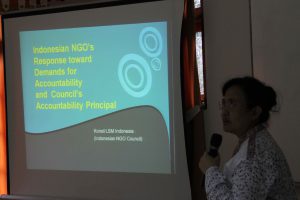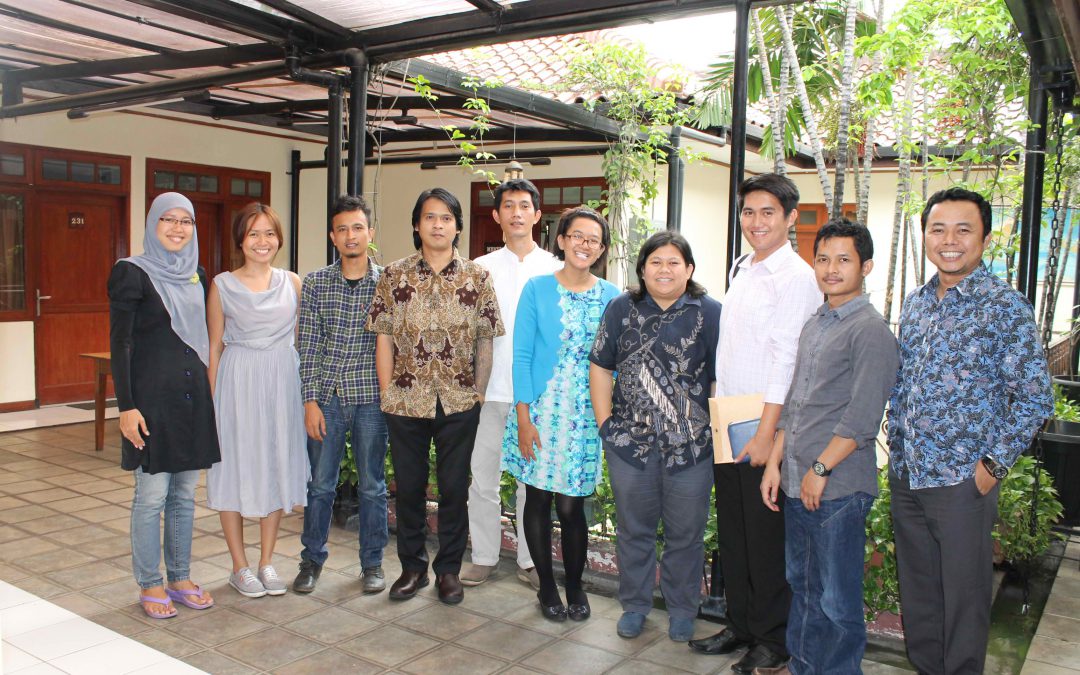Despite its position as a large middle-income country, Indonesia continues to face significant development challenges, as a large number of Indonesians remain poor. There is a need as well as a challenge to translate the existing resources into better development outcomes. As a South-South Cooperation provider, the country also has a strong contribution to make to efforts aimed at improving the international aid architecture for all recipients including both low-income countries and MICs. This would entail the active participation of civil society in development processes; hence CSO effectiveness must be enhanced, not only in advocacy and policy engagement but also by strengthening their own accountability.
The Reality of Aid – Asia Pacific (ROA-AP) and Asia Pacific Research Network (APRN), on behalf of the CSO Partnership for Development Effectiveness (CPDE), organized back-to-back training workshops on Aid Monitoring and CSO Accountability in Jakarta last June 13-16, 2014. The objectives of the four-day activity were two-fold: a) increased evidence-based policy engagement on aid and development effectiveness carried out by Indonesian CSOs, and b) increased CSO knowledge and skills on CSO Development Effectiveness, and CSO accountability mechanisms.
 Key Indonesian organizations, including PATTIRO, KONSIL LSM (Indonesian NGO Council), HRWG (Human Rights Working Group), INFID (International NGO Forum on Indonesian Development), FITRA (Indonesian Forum for Budget Transparency), YAPPIKA (Civil Society Alliance for Democracy), YLBHI (Indonesian Legal Aid Foundation), WALHI (Indonesian Forum for Environment), among others, participated in the workshops.
Key Indonesian organizations, including PATTIRO, KONSIL LSM (Indonesian NGO Council), HRWG (Human Rights Working Group), INFID (International NGO Forum on Indonesian Development), FITRA (Indonesian Forum for Budget Transparency), YAPPIKA (Civil Society Alliance for Democracy), YLBHI (Indonesian Legal Aid Foundation), WALHI (Indonesian Forum for Environment), among others, participated in the workshops.
Participants discussed issues faced by CSOs in the country that restrict civil society participation in national development processes. Indonesian CSOs lamented the passage of the Law on Mass Organizations, which infringe upon the rights to freedom of association, expression, and religion and imposes a variety of vague obligations and prohibitions on NGO activities. They pointed out numerous instances of CSOs being denied access to information from a Ministry because it is not registered. By placing a variety of vague requirements on NGOs, the law leaves the latter exposed to improper government interference in their work. Further, the NGO Law bans foreign NGOs from activities that may ‘disrupt the stability and integrity’ of Indonesia or ‘engage in activities that disrupt diplomatic relations’.
Access to funds is another important concern for Indonesian CSOs. Often, the government is inclined to provide resources to organizations linked to their political party. Local CSOs are not able to access funds from international donors if they do not fulfill the government’s requirements. Moreover, many donors require Indonesian CSOs to establish partnership with the government to avail of donor funds.
Towards the end of the training, participants identified several country issues in development cooperation that will be the focus of the researches to be implemented this year. The purpose of the research is to examine whether development cooperation efforts have effectively contributed to uplifting the conditions of the poor and marginalized. A Roadmap on CSO Accountability, and a Country-level Working Group on CSO Accountability that is set to implement the Roadmap, have also been developed. The Roadmap will guide the creation and implementationof the National CSO Accountability Charter that aims to contribute to enhancing CSO effectiveness, legitimacy and transparency through improvement of CSO accountability processes.

